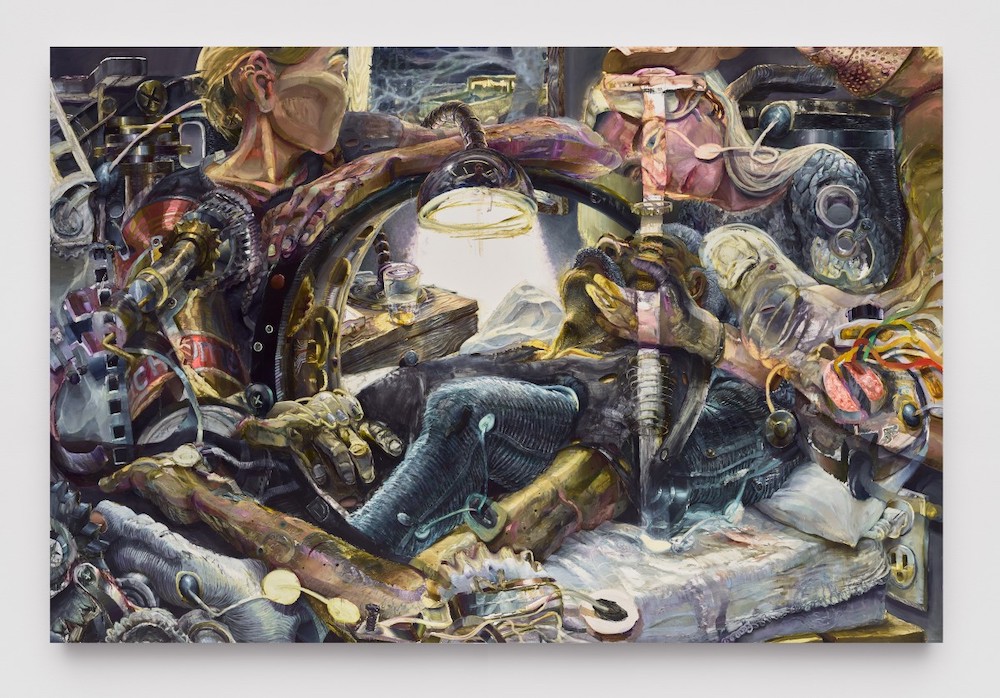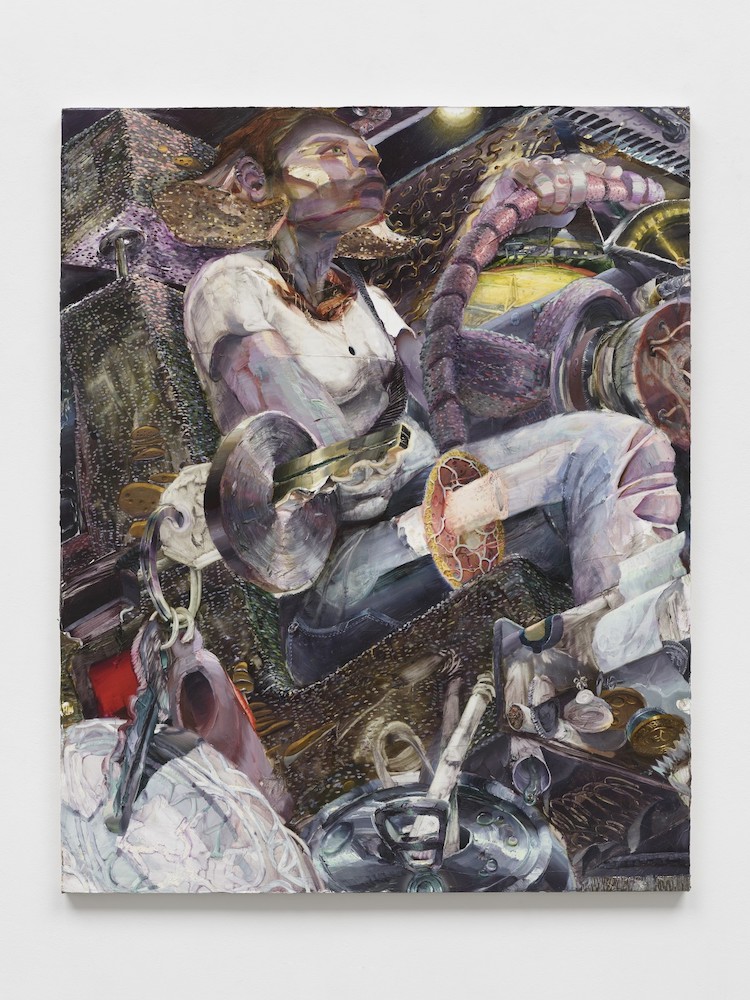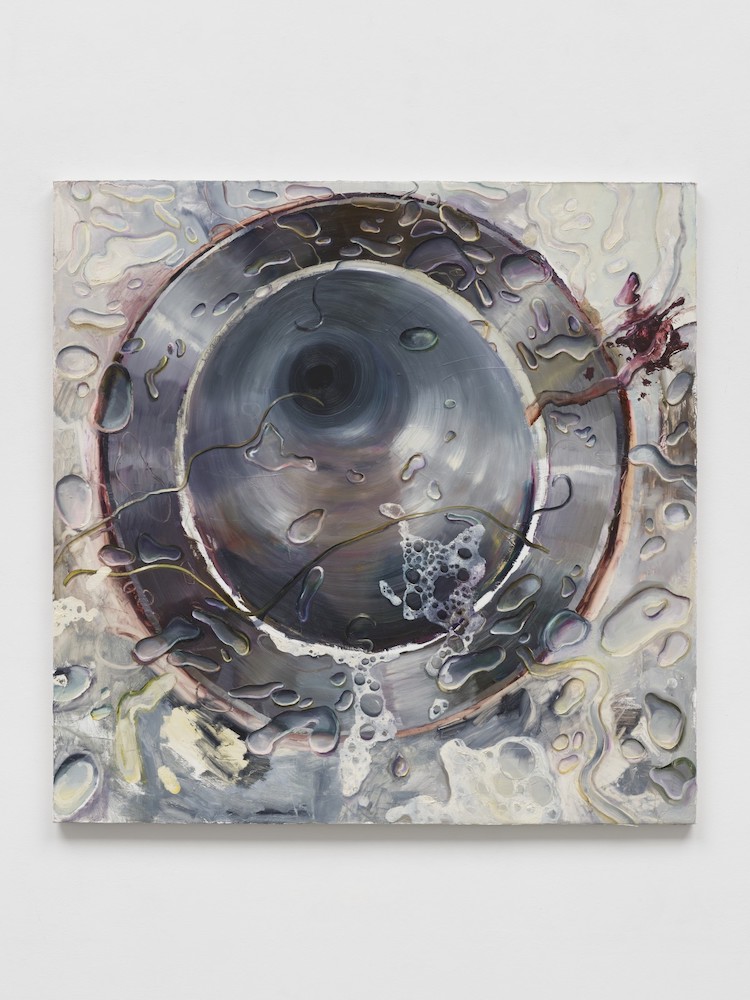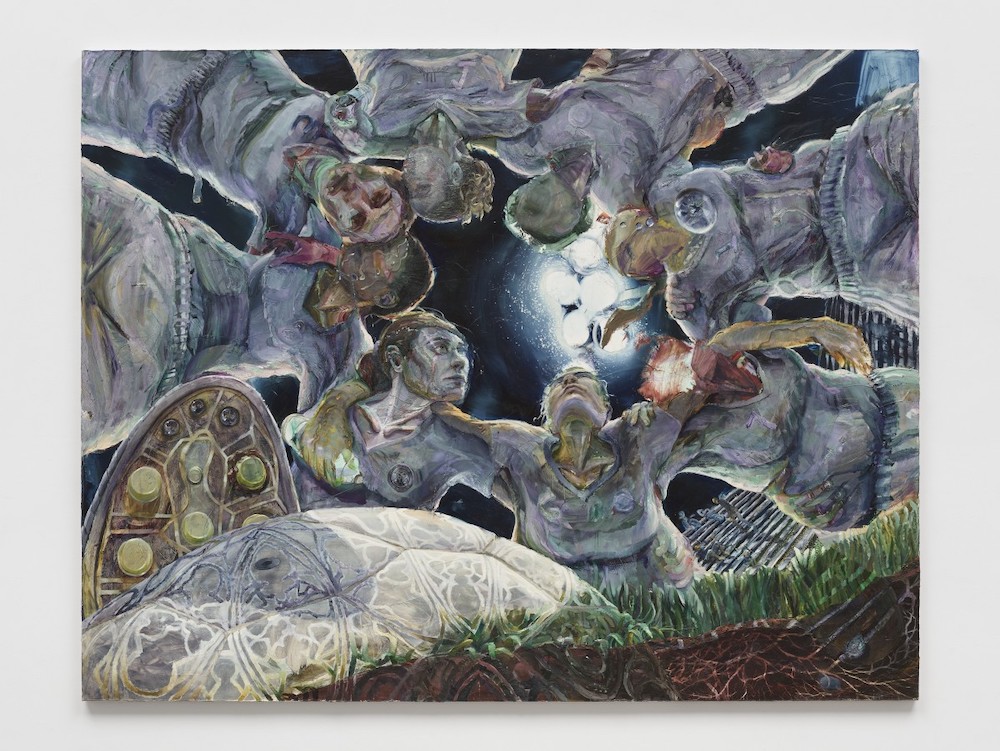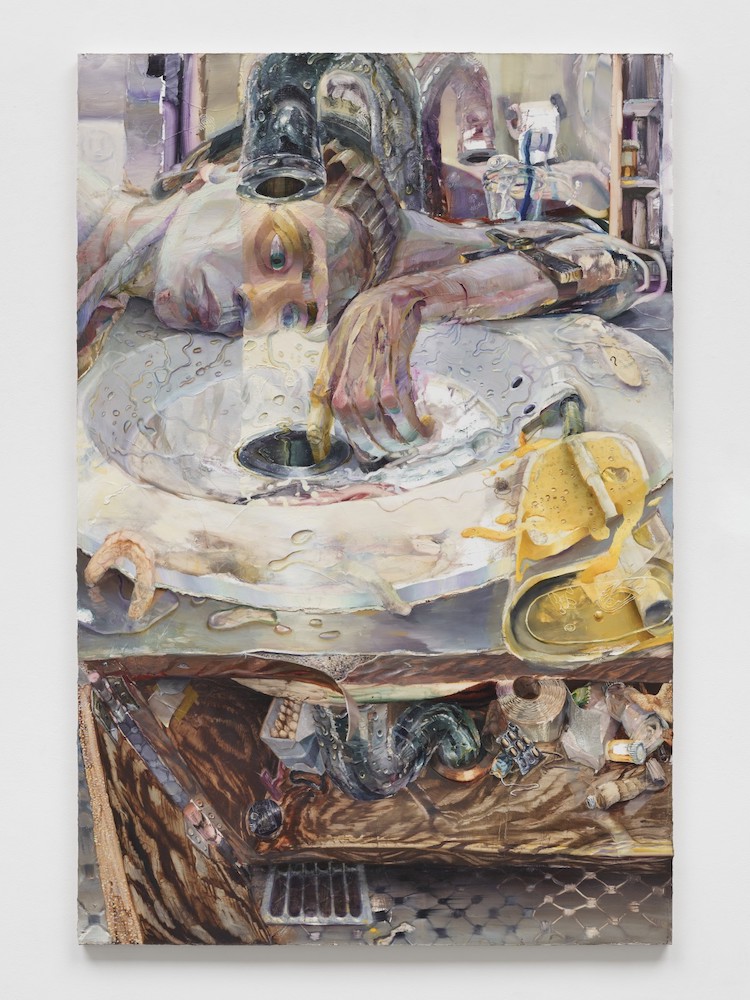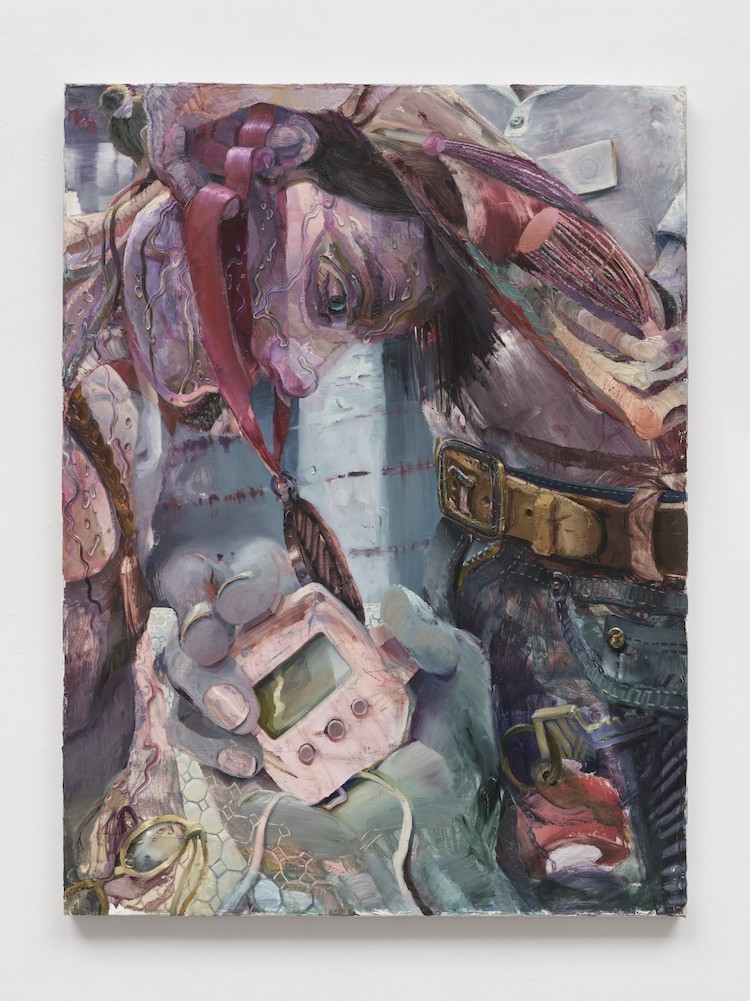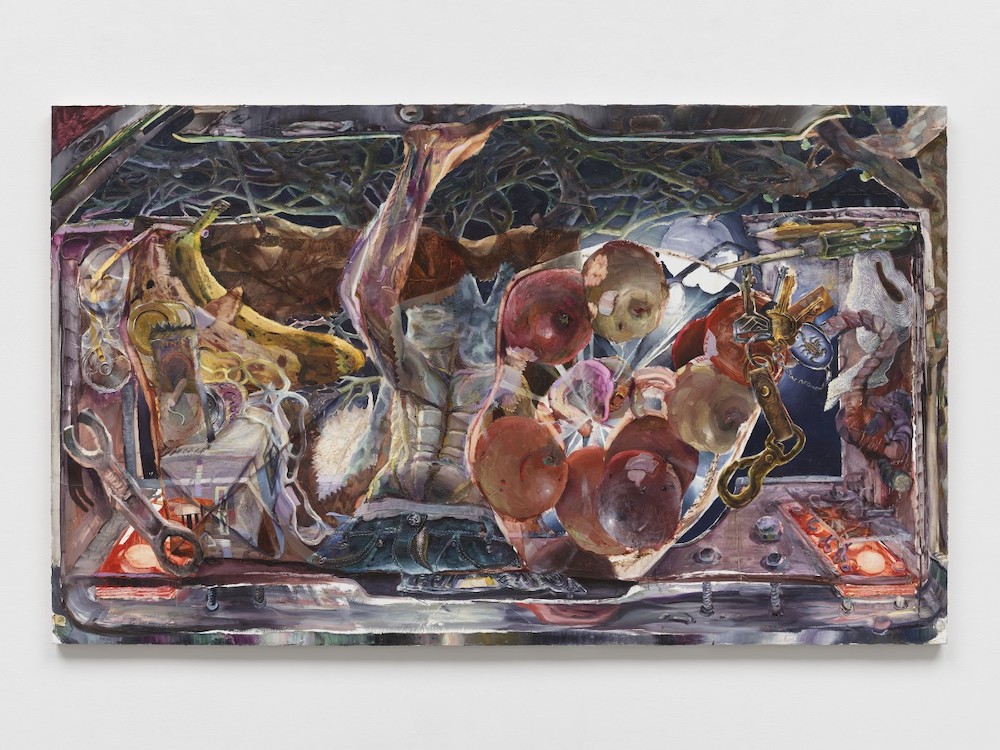"I want a painting to be able to read like a poem or a nightmare," Danica Lundy says, "to evoke a young lifetime’s worth of cultural gunk, great paintings, friction, disillusionment, jubilation, heartache... I want a painting that I can be totally consumed by." This feels like a historic comment, a lifetime of painting in one phrase. And yet Lundy is still ascending, a maverick of paint who has seen success through an almost magical use of oil paint. Figuration has been with us for centuries, but the way Lundy paints, the vantage points she captures and the angles and details she is able to create, she feels like a breath of fresh air on the contemporary art scene. That she is about to open Stop Bath at White Cube in London, who now represent her, is a symbol of her unique talent.
Like fellow White Cuber Julie Curtiss, there is something haunting about Lundy's works. a vision overload but done with a sense that one might be trying to escape or creating a plan for a quick move. They are escapist. As the gallery notes:
"Produced in the shadow of the death of her father, a photographer for a local newspaper, Lundy’s choice of title for the exhibition is both a tribute to him and a metaphor. Referring to the last stage in photographic development, where a fixing agent is used to secure the final image, ‘Stop Bath’ suggests a vision arrested, as well as a memory preserved. One of the largest paintings in the exhibition, Chamber (2022), melds personal memories with technical erudition in a scene framed by the parts of a dis-assembled camera. The lens forms a circular aperture in its centre, within which the artist’s ailing father reclines on a hospital bed flanked by two young women. Surrounded by a mass of interlocking, layered motifs – wheels, cogs, cords, medical equipment, mirrors, brass and metal knobs and bolts – the ensemble suggests a musing on photography in relation to the painted image and modes of seeing and depicting, as well as a statement on the role of the camera within her father’s life."
Although there is loss here, the works feel absolutely alive, work you can't take your eyes off of and overwhelm you with movement. And completely cinematic. "Most of my paintings point out the fact that there’s a life beyond the set, that the boom’s just out of sight. That there’s a director, a crew, a trail of their debris left behind," Lundy says. Perhaps that is why they feel compelled to move. Everything is considered, motion is set, and the Lundy is the magical director. —Evan Pricco



